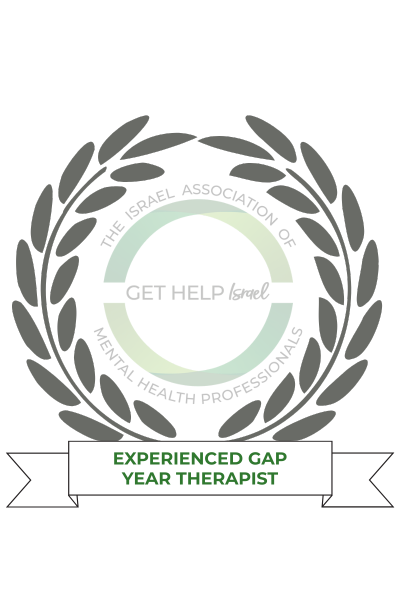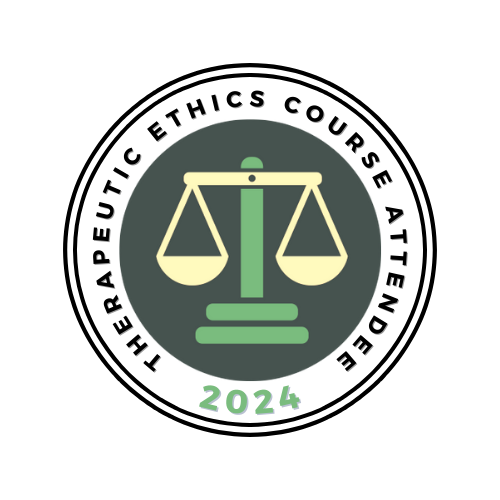Leah Gniwesch
Credentials
Finances
Licensed in Israel
- Rechov Caspi 12
- Jerusalem, 9355413
- Email Me
- FREE CONSULTATION
-
 Business Hours
Business Hours
Leah Gniwesch
 Verified
Verified
Credentials
Life Coach, Psychologist
PhD
Finances
500-700 NIS
None
Sliding Scale | Free Consultation
ABOUT THE THERAPIST
Something isn't feeling quite right about how you are living your life. Perhaps you are feeling stuck or like you are not living into your full potential. You may be feeling unsure of yourself or lacking direction. Perhaps you are feeling more sadness, anxiety or anger than you want to feel. With coaching, in a short period of time you will move forward towards where you want to be.
*You will feel more clear, more confident and more empowered.
*You will love yourself more and take better care of yourself.
*You will create more balance in your life and discover and apply your self- healing potential.
Your short term, cost- effective coaching program will be tailored specifically for your needs based on my 23 years of experience. We will work in an emotionally safe environment where you will be supported and ultimately learn to support YOURSELF. Call me today for a FREE, no-obligation phone consultation to find out how coaching can help you. I look forward to meeting you!
QUALIFICATIONS
PhD
Ferkauf Graduate School of Psychology
1998
Degree
PhDEducation
Ferkauf Graduate School of PsychologyYear of Graduation
1998Years in Practice
27
REGISTERED PSYCHOLOGIST IN ISRAEL
Registration in Pinkas Hapsichologim
27-83724
ADDITIONAL CREDENTIALS
EMDR Level 2 certification 2016
June 2002-Life Coach Certification, Dynamic Wellness Strategies
DISTANCE COUNSELING
Telephone Counseling, Online Therapy
PRIMARY SPECIALTIES
Executive / Career / Life Coaching
Life Transitions
Self-Esteem
Stress Management
ADDITIONAL SPECIALTIES
Anger Management
Anxiety / Panic
Attention Deficit Hyperactivity Disorder (ADHD)
Codependency
Depression
Family Issues
Mood Disorders
Postpartum Depression
Sleep / Insomnia
Spiritual Concerns
Vocational Counseling
CLIENT FOCUS
Population
Adults
Couples
Men
Women
Languages Spoken
Hebrew
English
TREATMENT APPROACH
Body-Mind PsychotherapyBody-mind psychotherapy is an integrative approach to psychological treatment that draws from both psychotherapeutic and somatic/body-based approaches. It emphasizes the interconnection between physical, emotional, cognitive and spiritual aspects of being. This approach seeks to help individuals explore how physical sensations, emotions, thoughts and beliefs influence their behavior and well-being. Through this exploration, individuals can gain insight into how the body and mind interact to create patterns of behavior, and how those patterns can be changed to promote healing and wellness.
Cognitive Behavioral Therapy (CBT)Cognitive Behavioral Therapy (CBT) is a type of psychotherapy that focuses on how one's thoughts, feelings and behaviors are connected and can be changed. It is based on the idea that how we think (cognition) and how we feel (emotion) can influence how we behave. CBT helps people identify and challenge distorted thinking and replace it with more balanced thinking, leading to improved mood and behavior. ‘Homework’, usually containing practical writing exercises, is often completed by the client between sessions to reinforce the therapy. Examples of tools that practitioners often use are journaling, challenging beliefs, and mindfulness.
Eye Movement Desensitization and Reprocessing Therapy (EMDR)Eye Movement Desensitization and Reprocessing (EMDR) is a psychotherapy treatment that was originally designed to alleviate the distress associated with traumatic memories. It uses a structured approach to address the past events that may be causing current distress, and uses bilateral stimulation, such as eye movements, to activate different neural networks in the brain in order to reduce symptoms of trauma. EMDR has been found to be effective for a wide range of mental health issues, including anxiety, depression, and PTSD.
Neuro-Linguistic Programming (NLP)NLP is an approach to communication, personal development, and psychotherapy that focuses on understanding how people think, communicate and interact. It was developed by Richard Bandler and John Grinder in the 1970s. NLP looks at how people use language, their body language and other non-verbal communication to understand their inner experiences. It uses techniques such as modeling, reframing, and anchoring to help people change their behavior and beliefs. Its goal is to help people understand how they think and take control of their own behavior and thoughts. NLP is based on the belief that the way we think affects how we feel and how we act. It points out that each person operates within their own subjective reality rather than from a place of objectivity. Proponents of NLP believe everyone’s perception of the world is distorted, limited, and unique. A therapist who practices NLP explores how a person in treatment perceives their reality and the effect this perception may have on that person’s thoughts and behavior. The therapist can then help them find and strengthen the skills that serve them best and assist them in developing new ways to replace ones that have shown to be unproductive or harmful.
Life Coaching, Positive Psychology, Relaxation techniques, Stress management
SERVICES OFFERED
Individual Therapy
Coaching
Consultation
Couples Therapy
Group Therapy
Workshops/Educating

Therapist's Experience with Gap Year Students
Young adulthood is an incredibly exciting time but also comes with its challenges! Are you feeling down? Unsure about your future? Having difficulty dating? Managing ADHD? If so, I invite you to a FREE consultation to see how I can help you move forward with confidence and ease!

.jpeg)

 Verified
Verified


